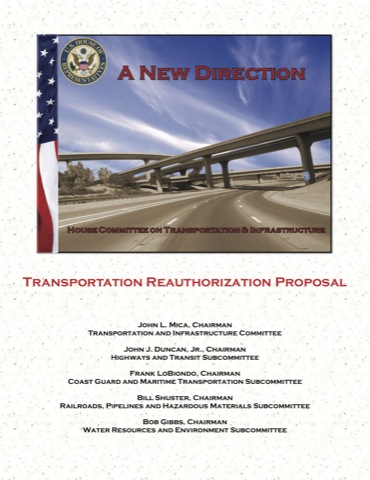Should federal transportation funds be distributed to states and cities based on fixed criteria, such as population and land area, or should they be handed out based on the political whims of whoever is in power at the moment? While Republicans in Congress are moving in the former direction, the Obama administration is moving towards the latter approach.
Last week, the House Transportation and Infrastructure Committee passed a surface transportation reauthorization bill that would use formulas to distributed almost all federal gas taxes. Among other things, this would eliminate the New Starts transit fund, a multi-billion-dollar annual fund that gives cities incentives to plan high-cost rail transit projects, so they can get “their share” of federal dollars, when low-cost buses would work just as well.
Meanwhile, the Obama administration has published draft rules revising the New Starts planning process by making the criteria for transit funding more vague (and therefore more political) than ever before. Where House Republicans would take the politics out of transit funding by turning transit grants into formula funds, the administration’s new rules make transit funding more political than ever by creating vague new criteria that cities can use to justify rail transit projects.








